U.S. News
18 Surprising Foods You Might Not Know Are Banned in the U.S.
By Jake Beardslee · December 26, 2024
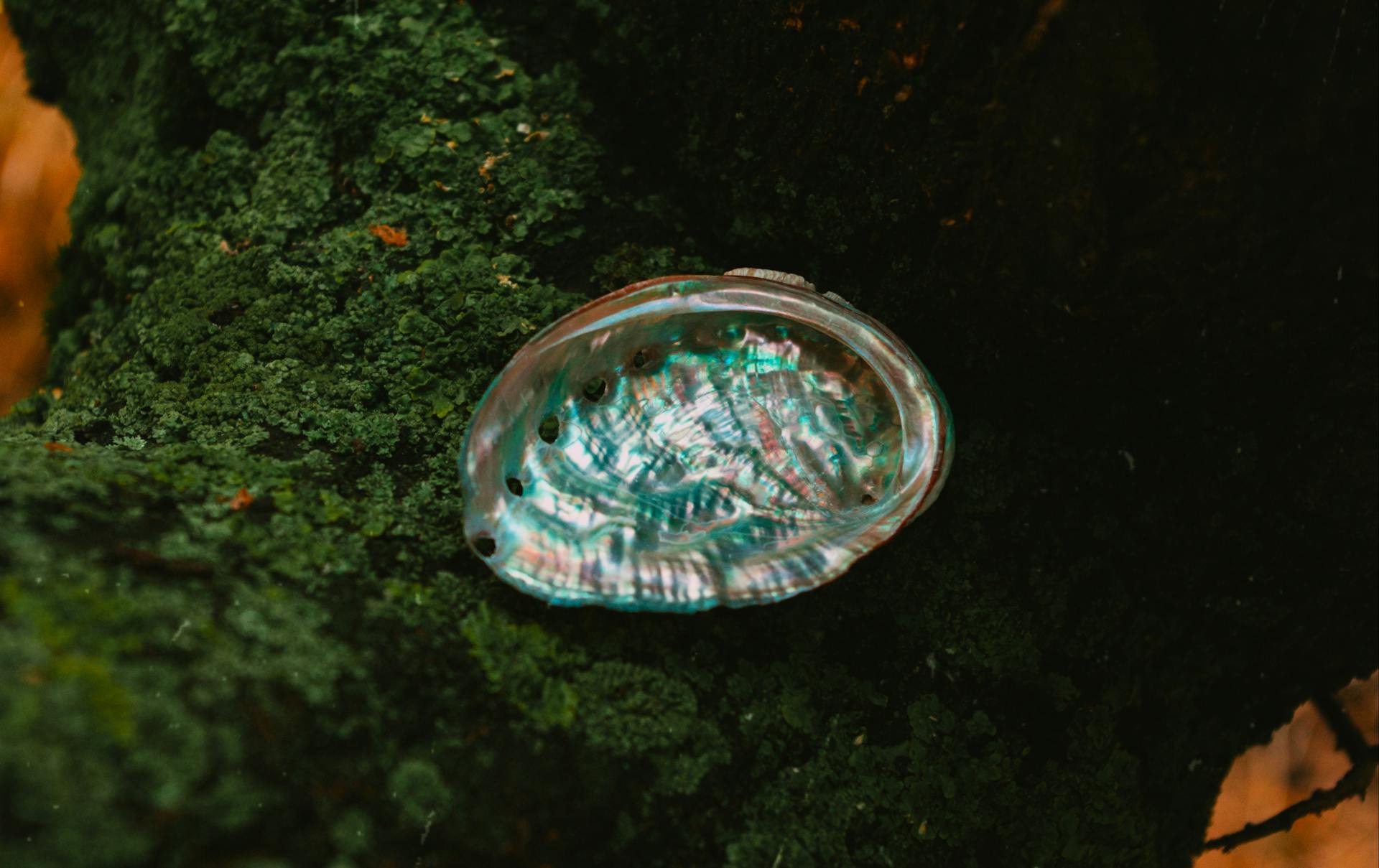
Some foods have sparked passionate debates, like foie gras in California, where the ban has ping-ponged through courts. Others remain firmly off-limits despite their cherished status elsewhere in the world. From creamy raw-milk cheeses to controversial confections, here are 18 fascinating foods that remain tantalizingly out of reach for American consumers. Dagmara Dombrovska / Pexels
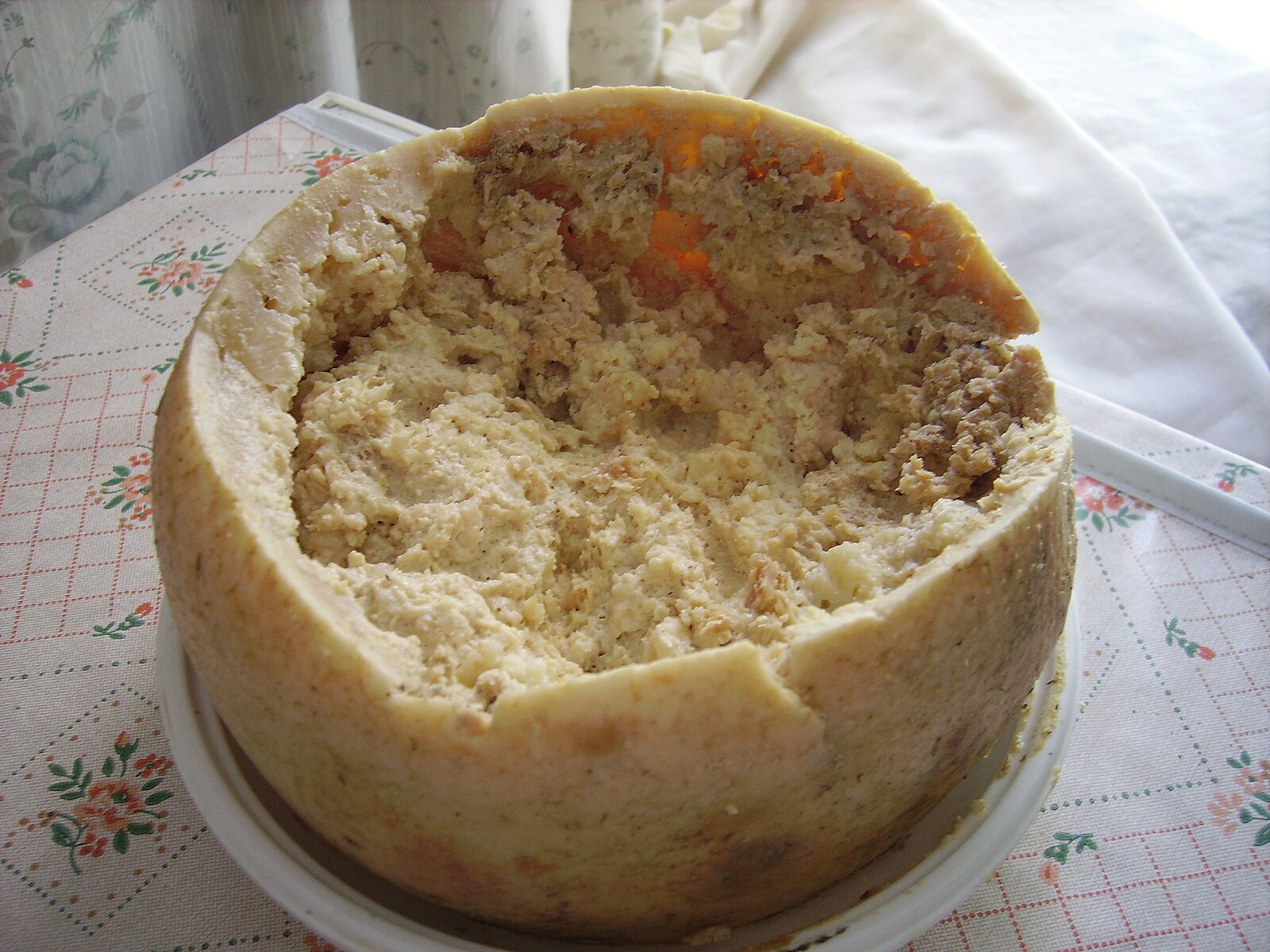
Casu Marzu: The Maggot Cheese
If you find yourself in Sardinia, Italy, you might come across casu marzu, a traditional sheep's milk cheese known for being infested with live maggots. Known as "the world's most dangerous cheese" by Guinness World Records, this delicacy is not available in the United States for obvious reasons.Additionally, it is banned in the European Union, a prohibition that was contested as recently as 2023, given its status as a traditional food in Italy. Shardan / Wikimedia
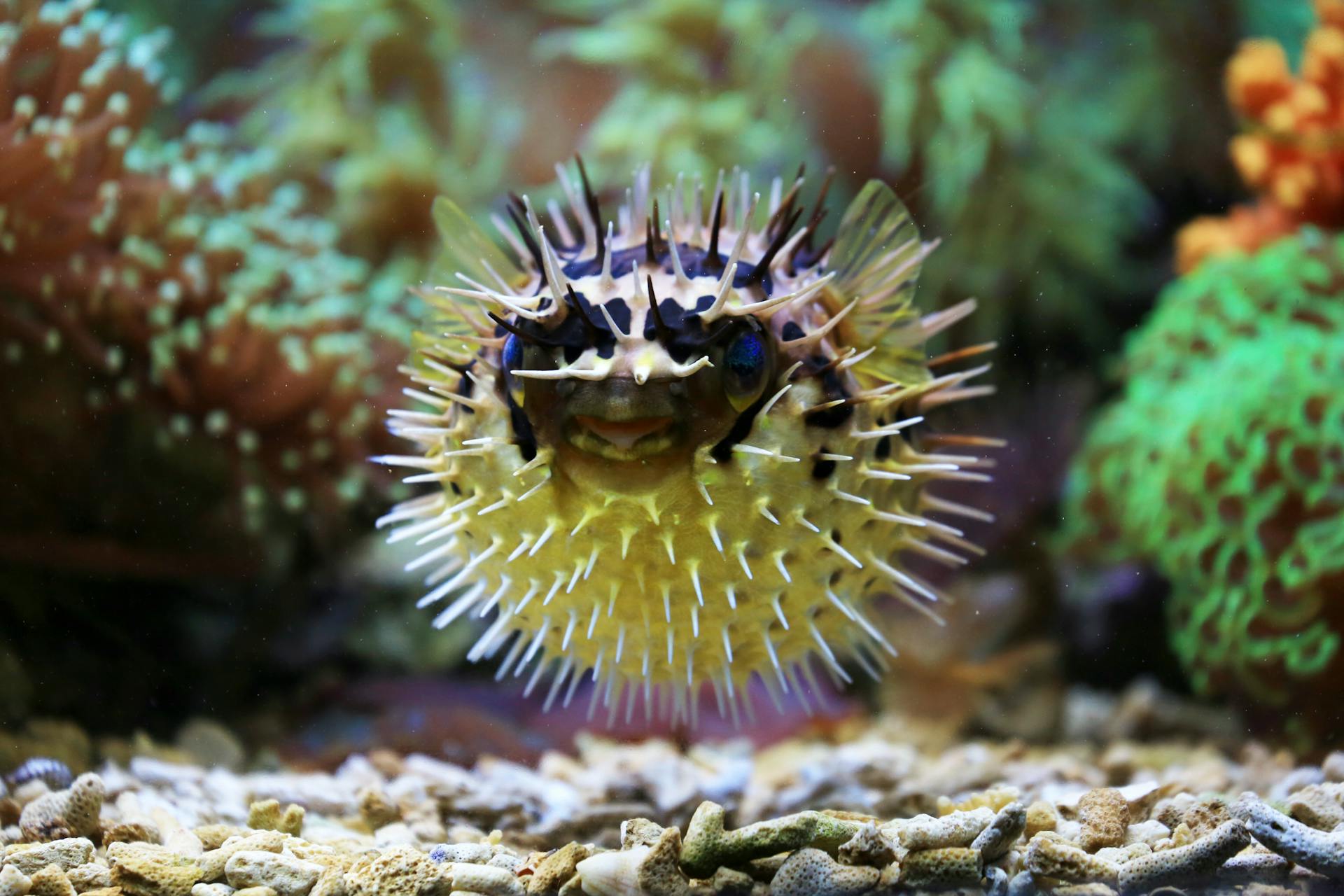
Japanese Pufferfish (Fugu)
In Japan, pufferfish, known as fugu, is a delicacy served in upscale restaurants, but it can be fatal if not prepared properly. The FDA warns that Japanese pufferfish contain tetrodotoxin or saxitoxin, toxins that are "more deadly than cyanide." Due to these risks, only one company is authorized to import pufferfish into the United States. Jeffry S.S. / Pexels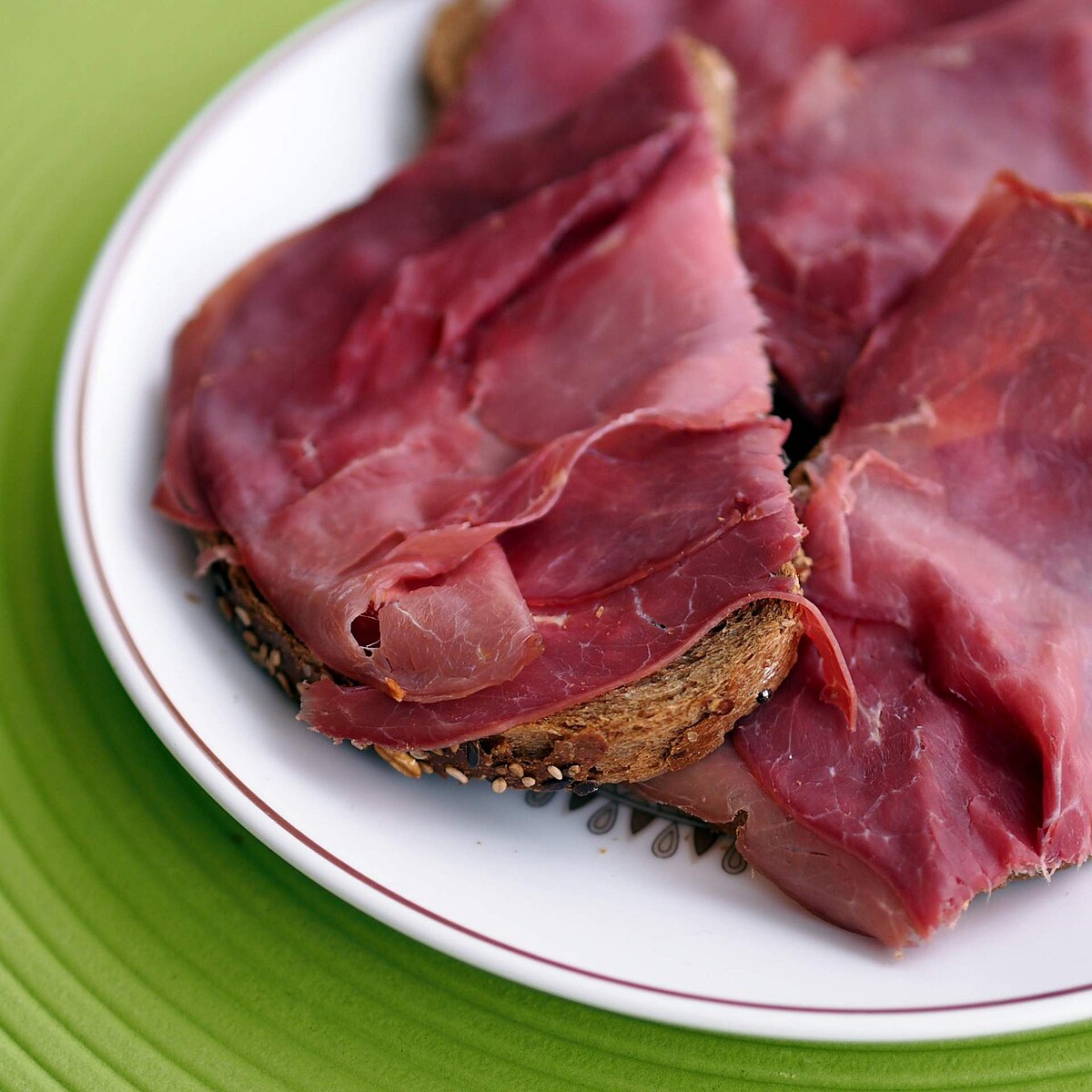
Horse Meat
The United States does export horse meat to countries such as Canada and Mexico, although pending legislation in Colorado seeks to prohibit this practice.While eating horse meat is not technically illegal in most parts of the U.S., regulations have made it challenging to access. Congress has banned funding for the Department of Agriculture to inspect horse meat, and without inspections, it is illegal to serve, distribute, or sell it, effectively making horse meat consumption nearly impossible. Takeaway / Wikimedia

Wild Abalone
Overfishing led to California's ban on wild abalone harvesting, with sport fishing also restricted to help rebuild the population. The ban is set for potential review in 2026. Dagmara Dombrovska / Pexels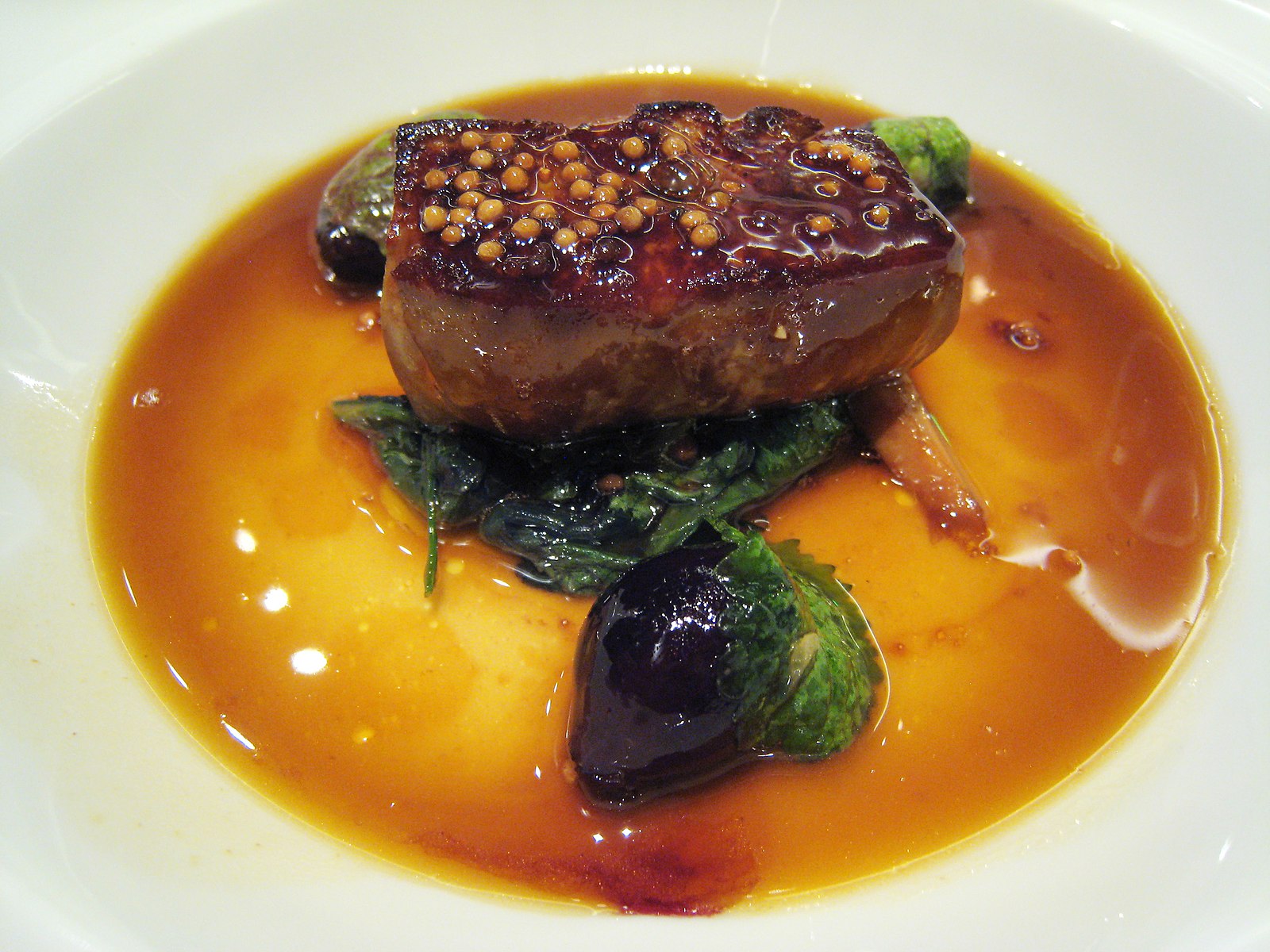
Foie Gras: Luxury Meets Controversy
Banned in California due to animal cruelty concerns, foie gras—made from the enlarged livers of force-fed ducks or geese—remains a polarizing delicacy. While some areas allow private consumption, commercial sales are restricted. Charles Haynes / Wikimedia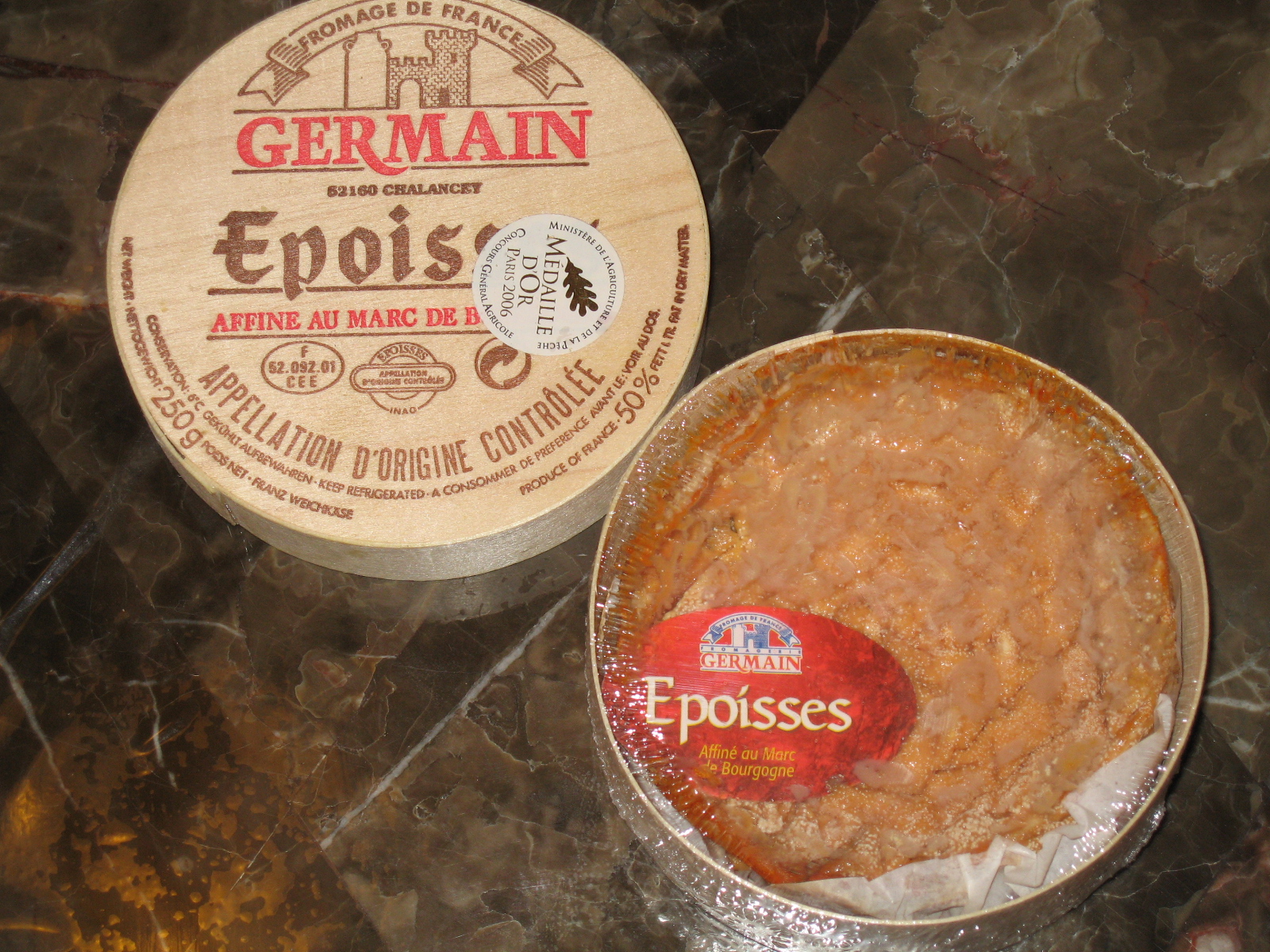
Époisses Cheese: The Smelly Cheese You Can't Have
This pungent French cheese, made from unpasteurized milk and aged under 60 days, is a no-go under FDA regulations. While pasteurized versions exist, true Époisses lovers may need to plan a trip to France for the authentic experience. Sominsky at English Wikipedia / Wikimedia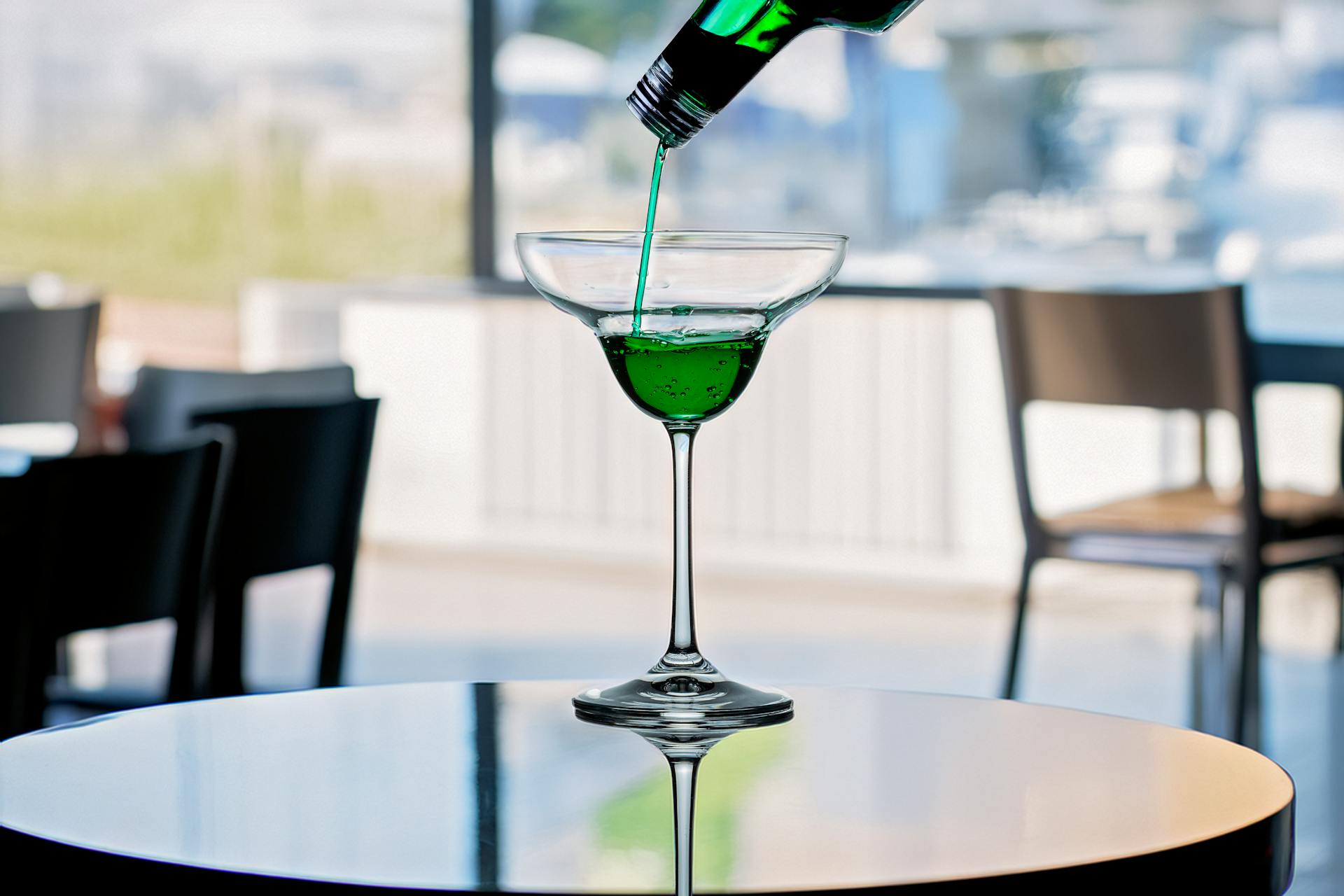
Absinthe
Absinthe's reputation has been shaped by historical misconceptions, including unfounded claims that the spirit causes hallucinations and even murders. These rumors contributed to its ban in the U.S. and several European countries for nearly a century. However, this changed in 2007 when absinthe became available again in the United States.Today, absinthe can be purchased in America, but it must be thujone-free, containing less than 10 parts per million of thujone, a chemical traditionally found in the drink. Despite its return, absinthe remains subject to strict regulations by the FDA. Marcelo Verfe / Pexels
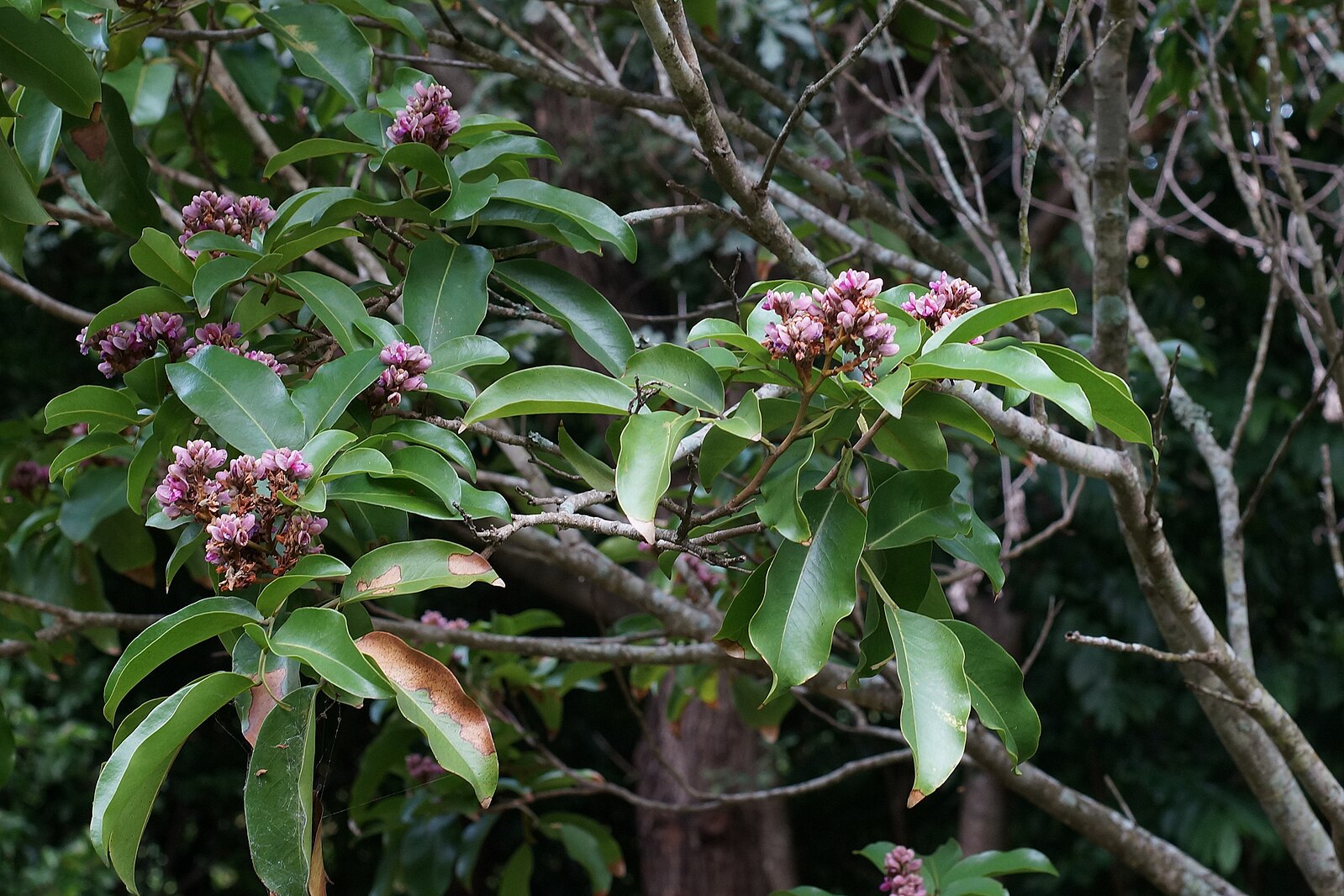
Tonka Beans: A Flavorful Forbidden Fruit
Known for their vanilla-like aroma, tonka beans contain coumarin, a compound linked to liver damage in high doses. The FDA banned them in 1954, though they remain popular in perfumes and other non-food items. Tatters / Wikimedia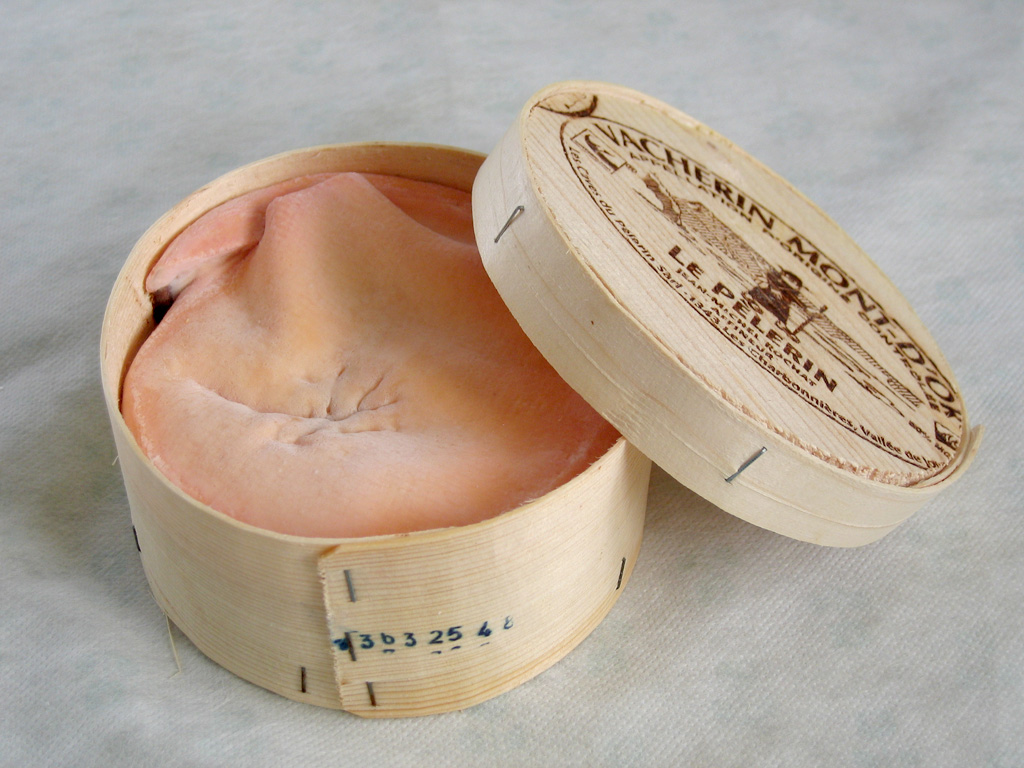
Mont d’Or Cheese
In a 2016 interview with Vogue, renowned cheese expert Chef Ryan Hardy explained that under French AOC certification law, certain cheeses cannot be made from pasteurized milk, preventing them from being imported into the United States. He described this seasonal French cheese's "unctuous, creamy pate" as something that is best enjoyed when the rind is removed, noting, "It's then that you realize it's the gangster, white truffle of all cheeses. This is the black market cheese." NEON / Wikimedia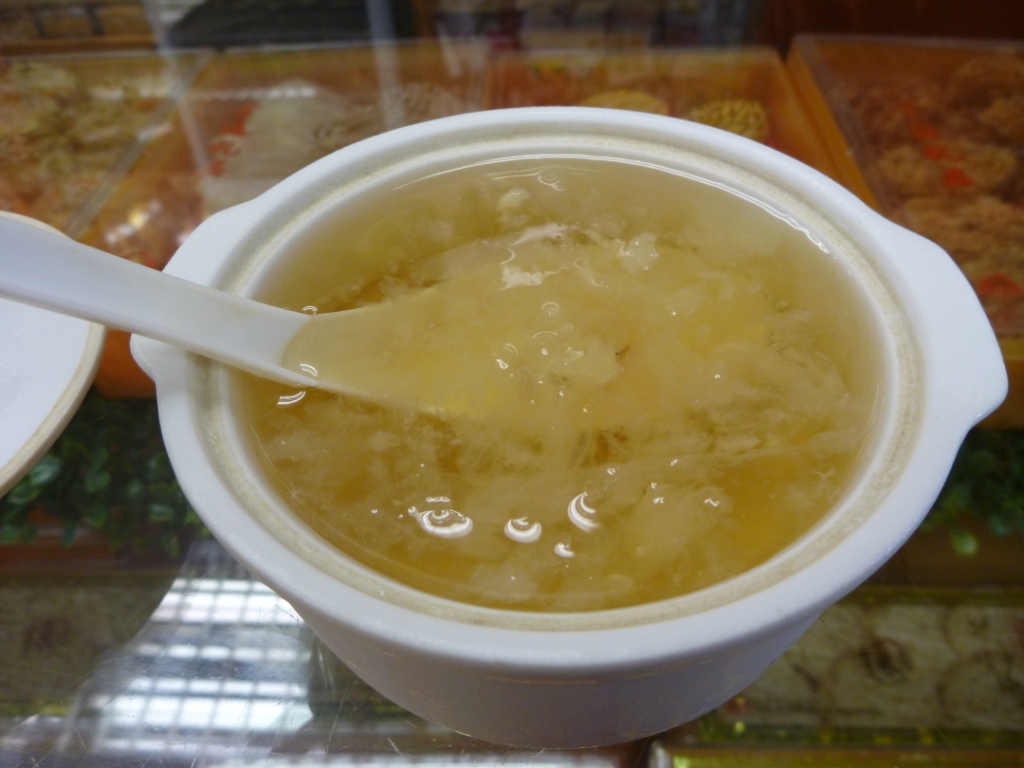
Bird's Nest Soup
This delicacy, made from solidified swiftlet saliva, is banned due to fears of avian flu contamination. While loved in parts of Asia, U.S. diners won’t find it on menus. Robert Staudhammer from Earth / Wikimedia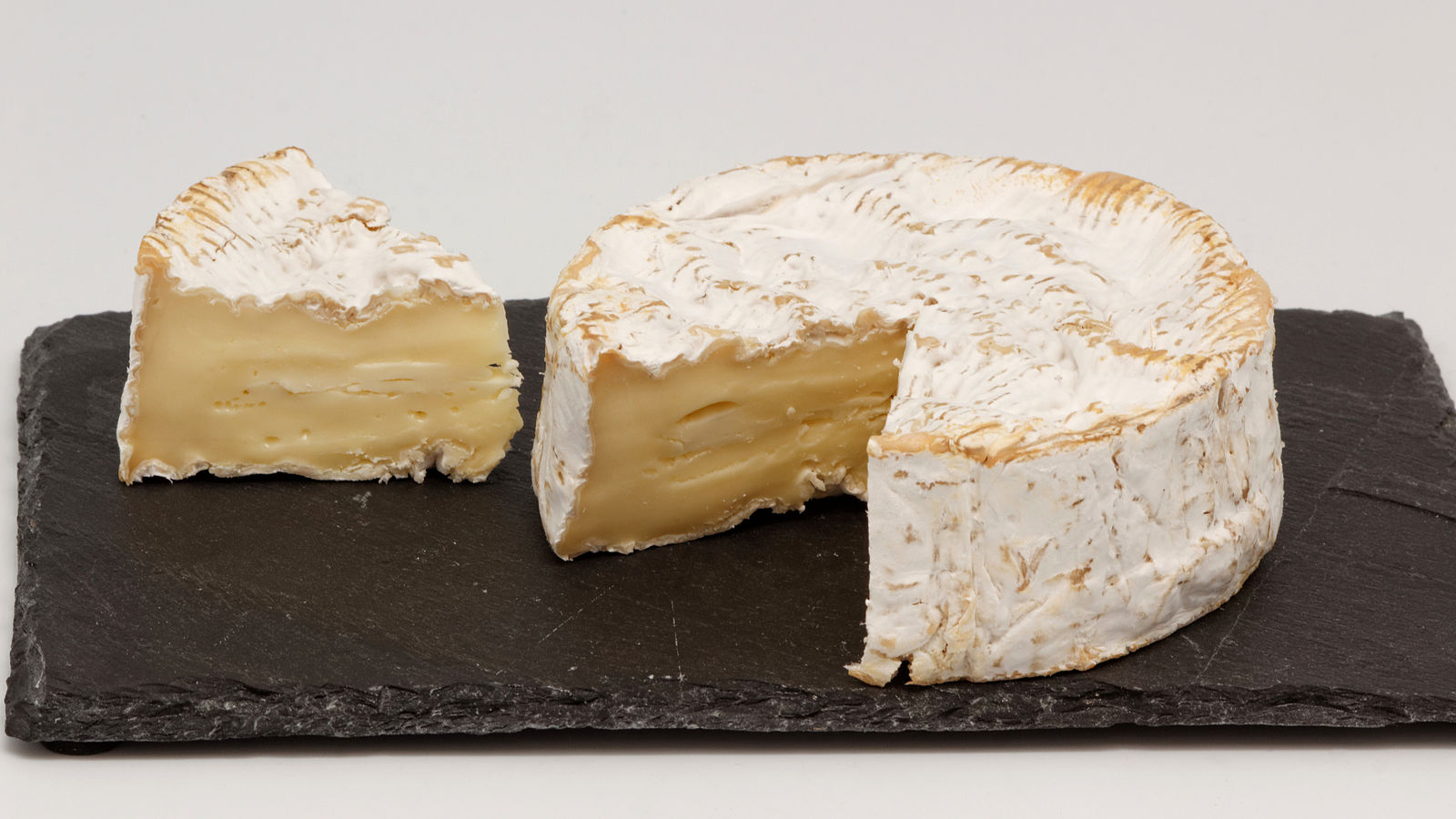
Camembert de Normandie
While American Camembert cheese can be found nationwide, the genuine Camembert de Normandie is absent from U.S. markets. Similar to Époisses and Mont d'Or, authentic Camembert is classified as an unpasteurized or "young cheese," which fails to comply with FDA regulations. Coyau / Wikimedia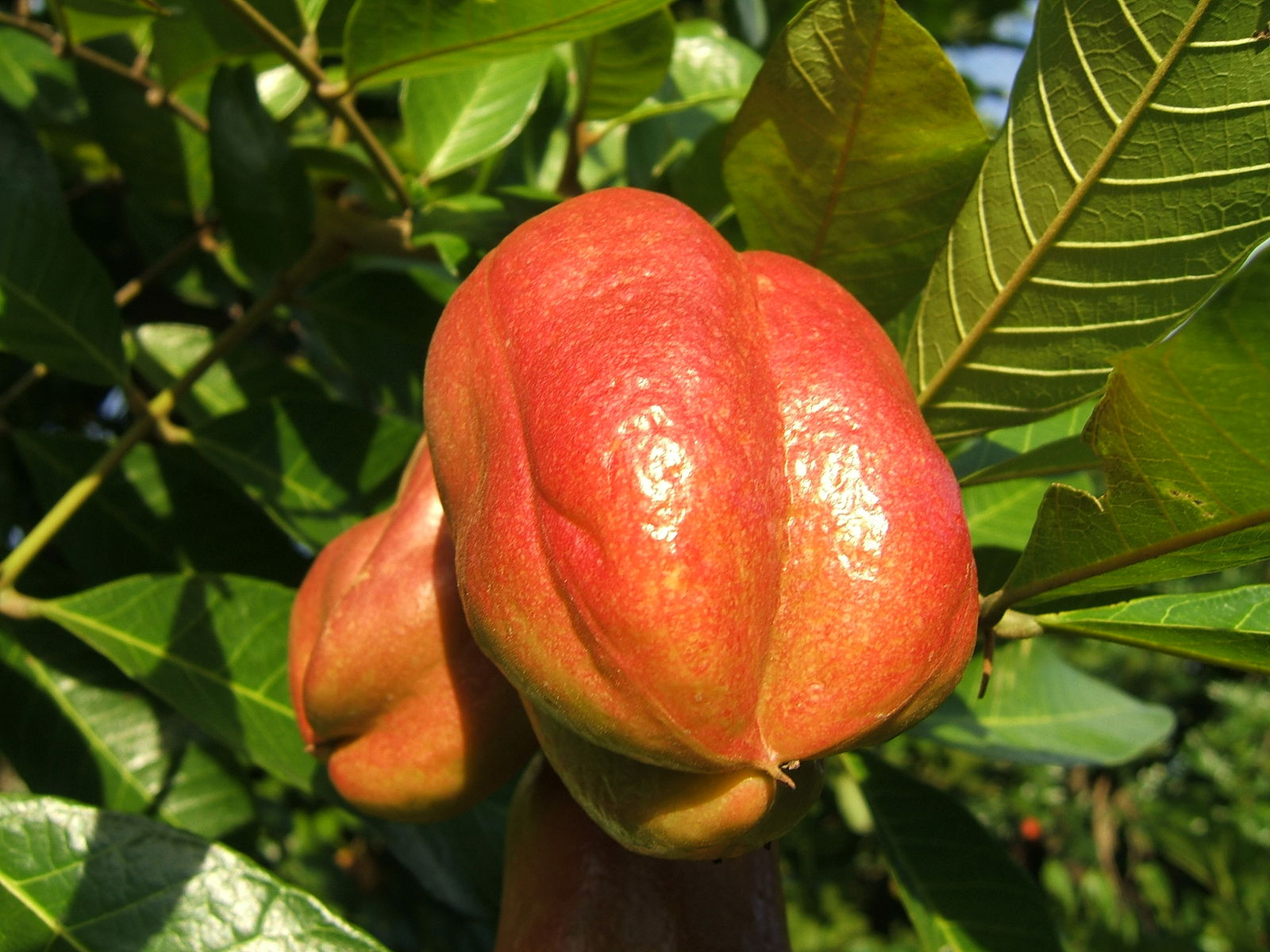
Fresh Ackee: The Toxic Fruit
Native to West Africa and a staple in Caribbean cuisine, ackee contains toxins that can cause severe health issues if improperly prepared. Only canned or frozen versions from approved suppliers are allowed. Jerome Walker / Wikimedia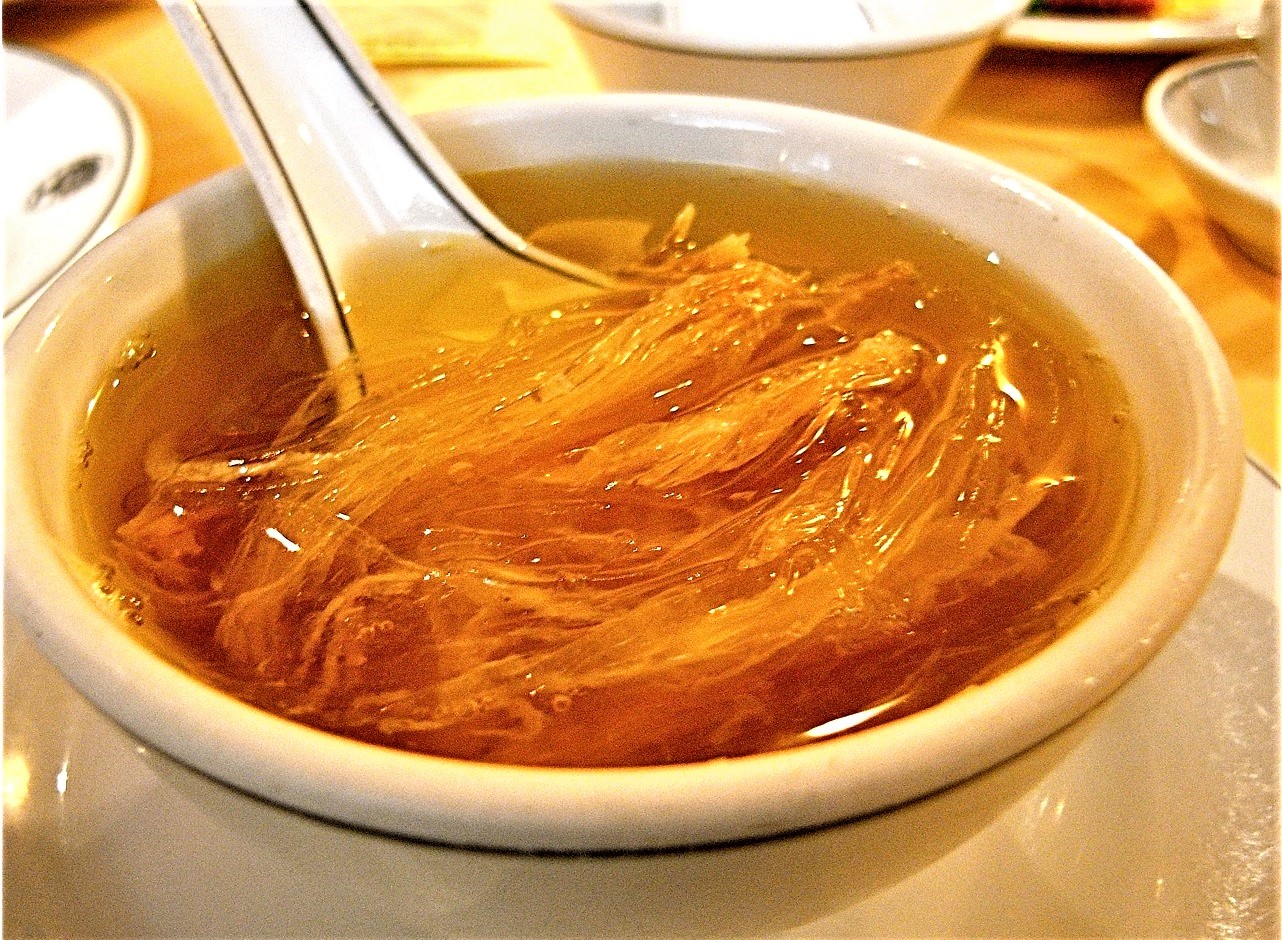
Shark Fins: Ethical Concerns at Sea
Shark fin soup is a sought-after delicacy in China, but the sale of shark fins is prohibited in the United States. Despite its appeal to some, ethical concerns surrounding shark finning prompted a federal ban.The Shark Fin Sales Elimination Act, which prohibits the possession, purchase, or sale of shark fins (excluding dogfish fins) in the U.S., was introduced in January 2019 and became law in December 2022 as part of the National Defense Authorization Act. harmon from austin, tx, usa / Wikimedia
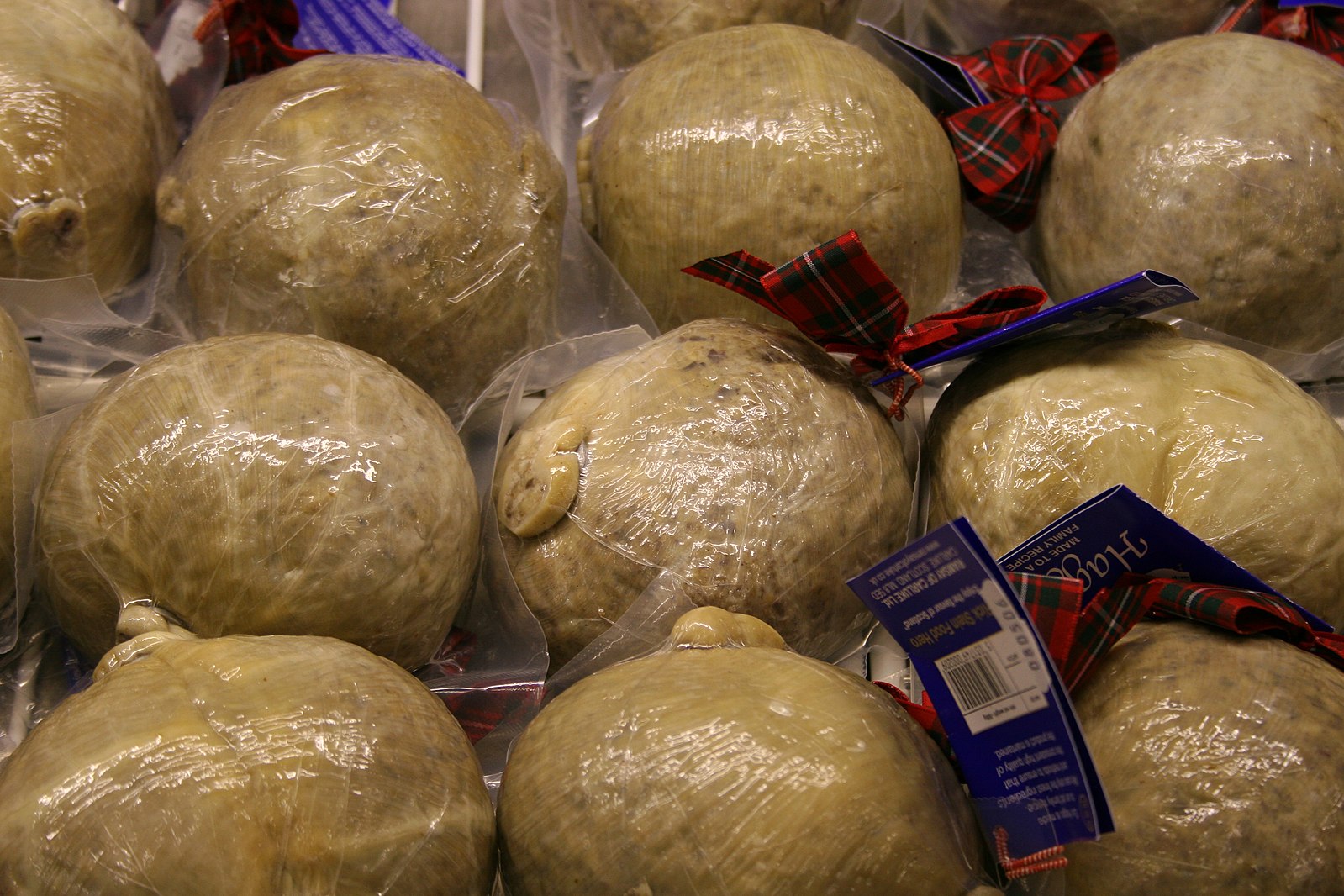
Haggis: Scotland’s Forbidden Dish
Scotland's national dish has not graced U.S. tables since the USDA imposed a ban more than 50 years ago. In 1971, the agency ruled that "livestock lungs shall not be saved for use as human food." Traditional haggis is made from sheep's heart, liver, and lungs, combined with spices and oatmeal, and traditionally served inside a sheep's stomach.Culinary icons like Anthony Bourdain have championed the dish. As noted by CNN, the late chef remarked, "There is no more unfairly reviled food on Earth than the haggis." Chris Brown / Wikimedia
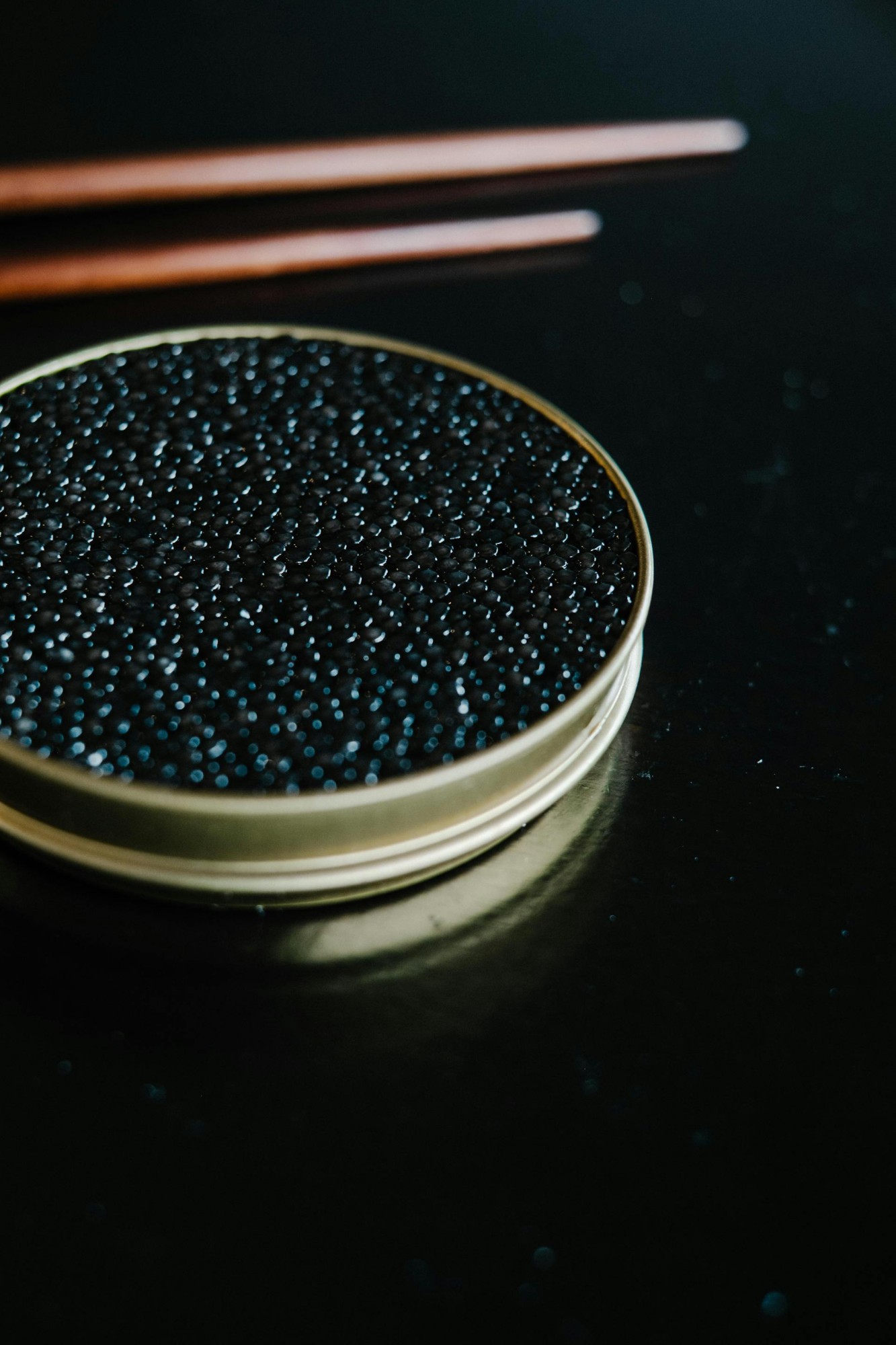
Beluga Caviar
Beluga caviar, a luxurious hors d'oeuvre, has been banned due to its popularity. The high demand for this delicacy led to the overfishing of beluga sturgeon, which are now a protected species. Consequently, importing beluga caviar into the United States is illegal.In Florida, Sturgeon AquaFarms stands as one of the largest caviar producers globally and the only legal breeder of beluga sturgeon in the U.S. The company also contributes to conservation efforts by donating fertilized beluga eggs to help boost the species' numbers in the wild. Rachel Claire / Pexels
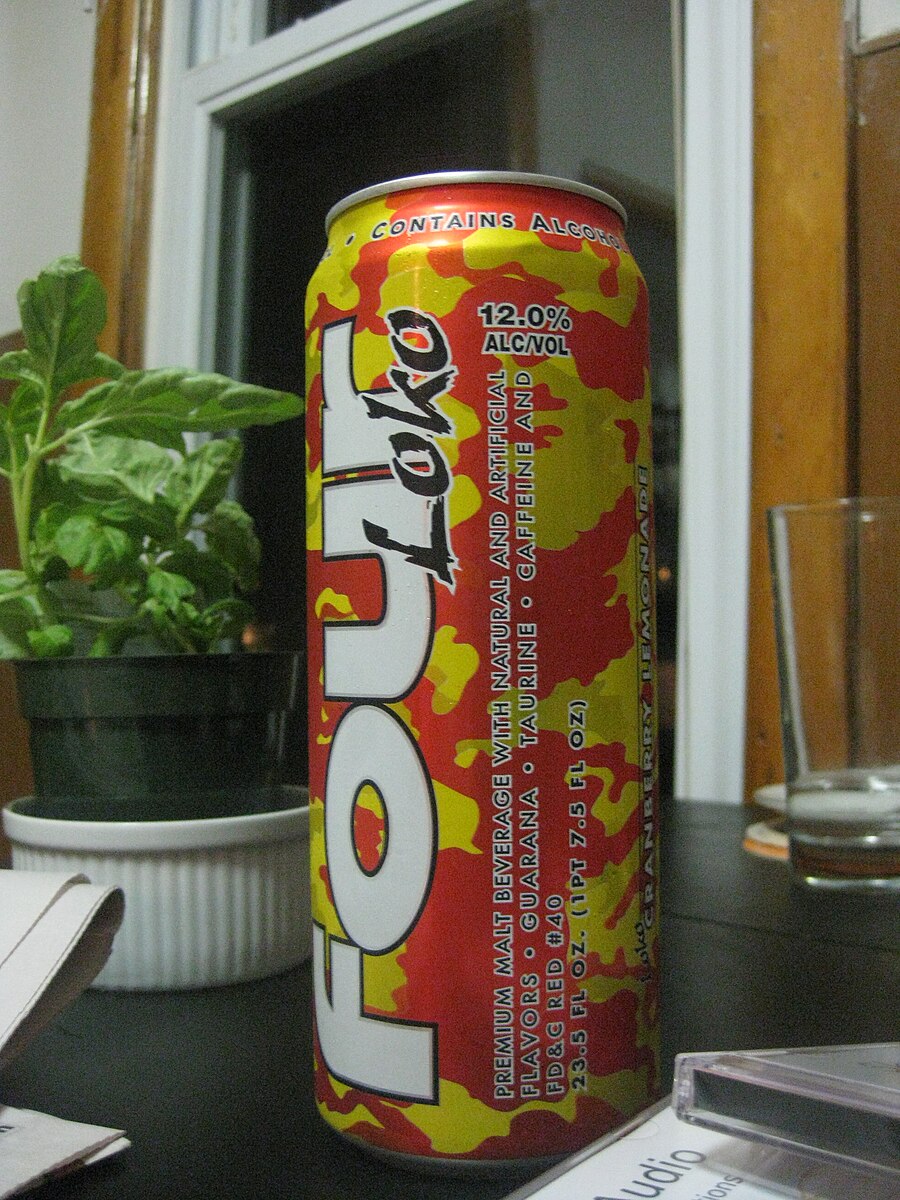
The Original Four Loko
Four Loko garnered negative attention upon its 2005 debut as an alcoholic beverage with a caffeinated kick. Dubbed "blackout in a can" on college campuses, it was linked to several hospitalizations among young people nationwide.In response, several states, including Massachusetts, began banning the drink in 2010, coinciding with the FDA's crackdown on caffeinated alcoholic beverages. Ultimately, Four Loko voluntarily removed caffeine from its formula, and the non-caffeinated version remains available on store shelves across the country. Austin Uhler / Wikimedia
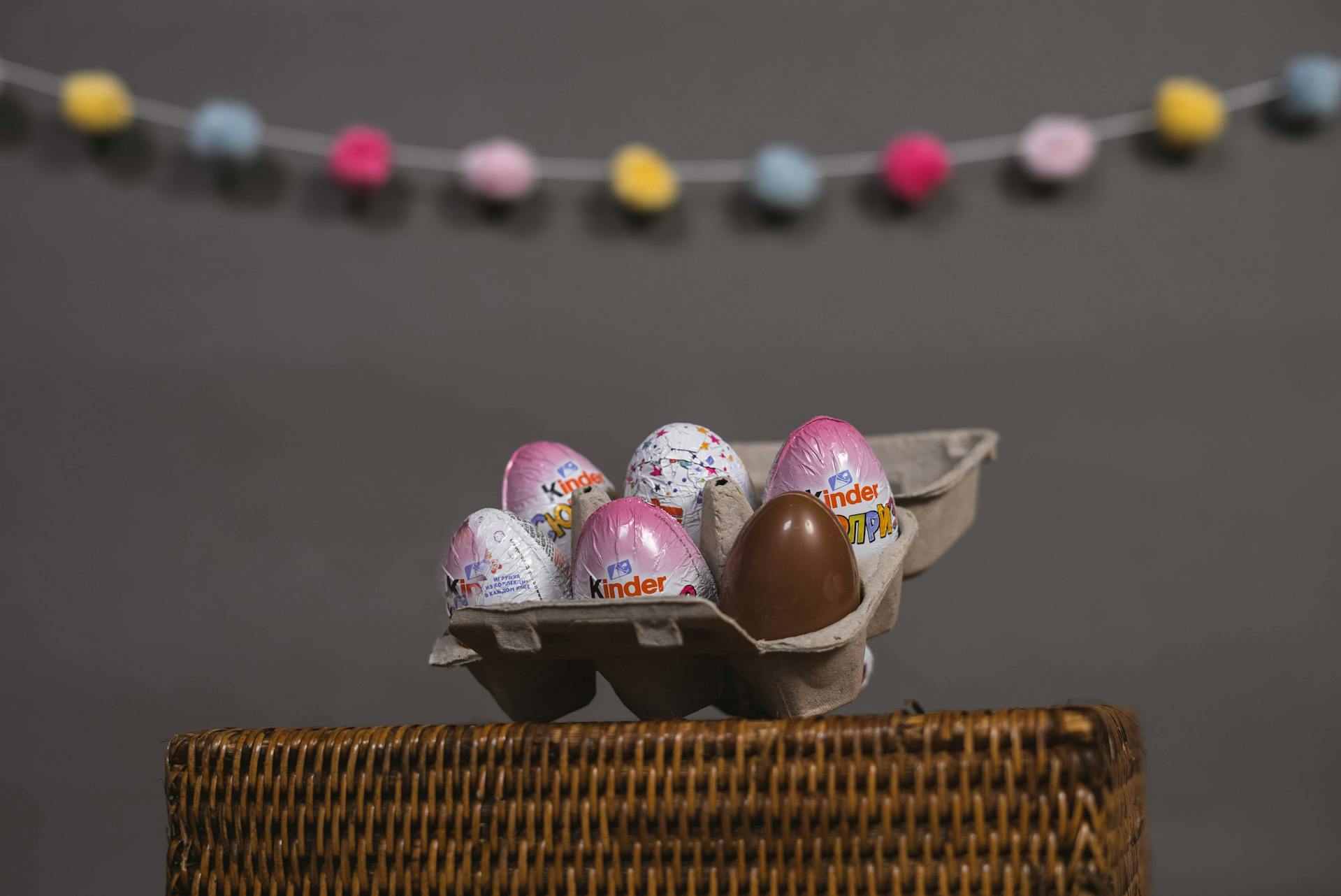
Kinder Surprise Eggs: Banned for Safety
In 1938, Congress enacted the Food, Drug, and Cosmetic Act, which effectively prohibited food products containing "non-nutritive" objects. The FDA considers the presence of inedible items in food a choking hazard, which is why Kinder Surprise Eggs—hollow chocolate eggs containing collectible toys—are banned in the United States.However, in 2017, the FDA made a concession with the introduction of Kinder Joy eggs in the U.S. While these treats retain an egg shape, the edible and non-edible components are separated within the packaging. Authentic Kinder Surprise Eggs remain prohibited, but travelers to Canada, Europe, and other regions can enjoy them—though bringing them back to the U.S. is not allowed. Dziana Hasanbekava / Pexels

Lazy Cakes: The Sleepy Brownie
In 2011, Lazy Cakes, a brownie containing 8 milligrams of melatonin—the maximum recommended dose for adults—faced significant backlash. After at least one child was hospitalized following consumption, Arkansas moved to ban the product.Simultaneously, the FDA issued a warning to the company, stating that melatonin is not an approved food additive. In response, Lazy Cakes rebranded itself as Lazy Larry, claiming their brownies were dietary supplements rather than food products. Kshkt KttK / Pexels